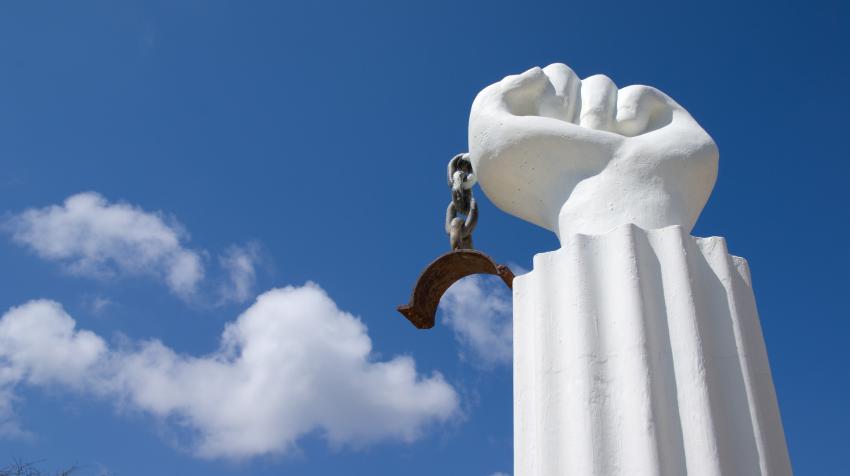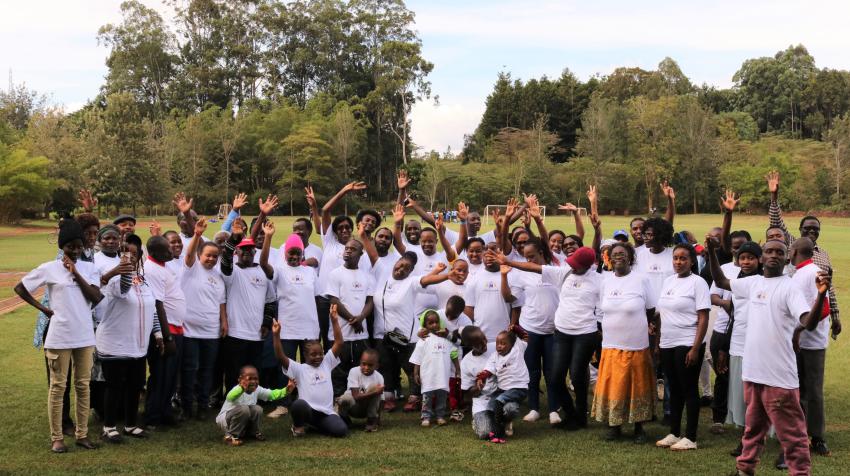Ethics in Action is an intelligent, provocative and important contribution to the fields of human rights and ethics. The book emerged from a series of meetings-apparently rather dynamic meetings-over the course of several years, which brought together academics and those working for various international non-governmental organizations (INGOs). Oftentimes, it reads like a spirited conversation between and among authors, but more than that the reader feels privy to many of the earlier discussions and arguments, even involving individuals who did not author any of the individual chapters. Thus, the book is the polar opposite of a sterile academic exercise. The editors (Daniel Bell and Jean-Marc Coicaud) rather present a lively and engaging text that ends up raising just as many troubling questions as its answers.
Ethics in Action is divided into three sections. The first is entitled "Northern INGOs and Southern Recipients: The Challenge of Unequal Power", and the very first chapter, "The Pornography of Poverty: A Cautionary Fundraising Tale", helps to set the tone for what is to follow. The issue raised by authors Betty Plewes and Ricky Stuart is whether it is appropriate for organizations doing "good" to employ marketing campaigns that rely on the titillation of human suffering. Such marketing campaigns apparently "sell" in the sense of increased financial support. But is this also true in the long term? And what are some of the broader consequences of employing the "victim" card? Another chapter that deserves special mention is Bonny Ibhawoh's insightful examination of the tensions between indigenous NGOs in the South and INGOs that are almost universally situated in the North. This issue of competing agendas is seldom discussed openly, and Ibhawoh not only presents the problem in a cogent fashion, but also offers various means by which the issue could be addressed in a way that would be more useful for all concerned.
Section II deals with the challenge of States that restrict the activities of INGOs. The Iraq war and China serve as two case studies: in the former, one of the vexing problems relates to INGOs that oppose the war-as almost all did-and how such opposition influences their work in Iraq. What adds another level of complexity is the fact that these same INGOs are almost totally dependent on coalition forces for security. Although no definitive answers are provided, Lyal Sunga's chapter does an excellent job of showing how these organizations are oftentimes forced to operate under conditions that are the opposite of their choosing. The next three chapters focus on the problem of working with the authoritarian Chinese Government. A chapter written by researchers at the Danish Institute for Human Rights shows how the Institute attempted to achieve the "possible", primarily by avoiding the impossible, namely dealing with China's overall human rights programme.
One of the issues raised in various places throughout the book is how INGOs decide where to operate and how they decide to pursue their programmes and policies. This is, of course, an obvious question, yet there appears to be no obvious answer. In that way, perhaps INGO practice is most accurately described by the title of Sophia Woodman's chapter, "Driving without a map". One thing that those working for INGOs might learn from this book is the clear need for developing such a map-even under conditions where the terrain is constantly changing.
The final section involves economic rights, and the exchange between the authors is reason enough to read the book. There are essentially two different issues: the first involves how INGOs, such as Human Rights Watch and Amnesty International, have struggled with their new-found attempts to deal with economic rights. What is striking is what those working for these organizations think they can achieve and how much more ambitious those outside of these INGOs think these organizations should be in the realm of economic rights.
The second issue goes back to what INGOs should be doing, which is addressed head-on by Thomas Pogge and Joseph Carens, both political philosophers. Pogge's position, in a nutshell, is that INGOs should focus their work on the eradication of severe poverty. This, of course, is a compelling argument to many, including those who work for INGOs. However, Carens' response is, what should be done if others-particularly contributors to INGOs and the organizations themselves-happen to have a different sense of moral responsibilities? Pogge's reply is equally insightful, arguing that it is vital that Western people, States and INGOs recognize that they are not engaged in some charitable enterprise for the "less fortunate", but rather they should see their work as but a small (and insufficient) way of attempting to provide payback to those who have been unjustly treated-by "us".
It would certainly appear that participants in these sessions upon which the book is based learned an enormous amount from the enterprise itself. But Ethics in Action should prove to be very useful to others as well. For one thing, the exercise of raising the most elementary question that all INGOs should face-how and why do we do what we do?-is something that is seemingly not asked often enough. This might also lead to another seldom asked question, which relates to the proliferation of INGOs. Is this such a "good thing", or is proliferation an indication that more time, effort and money are spent on propping up one's organization, but at the expense of "others"? The book also raises some hard questions for academics. The most important one is whether academia has marginalized itself to the point where it serves no other purpose other than the attainment of tenure. The final lesson, it is hoped, is the thrill and the importance of real dialogue. In that way, it would be my strong wish that Ethics in Action is merely the first instalment of a continuing conversation between academics and INGOs, and what would make the stew that much richer is the inclusion of some policymakers as well.
The UN Chronicle is not an official record. It is privileged to host senior United Nations officials as well as distinguished contributors from outside the United Nations system whose views are not necessarily those of the United Nations. Similarly, the boundaries and names shown, and the designations used, in maps or articles do not necessarily imply endorsement or acceptance by the United Nations.



